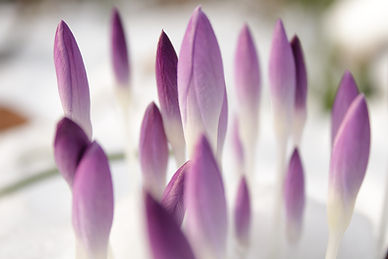How to determine the Quality of Essential Oils
- Sage Essentials Aromatherapist

- Apr 7, 2021
- 4 min read

If we are purchasing anything that claims to be 100% Pure, then that is exactly how it must be. 100% Pure of that ingredient, and absolutely nothing else.
But, there are all kinds of claims on Essential Oil labels that can be confusing, and perhaps misleading at times. There are labels which state "therapeutic grade", "medical grade", "pure oil", "perfume oil", "identical oil" but nothing that can really be disputed when something off is discovered when you thought you were buying a 100% Pure Essential Oil.
We are not saying there is anything wrong with these labels - you just need to be clear about what you are actually buying. At Sage Essentials for instance, we sell Natural Perfume Oils, and they are stated clearly on our labels that these are made from 100% Pure Essential Oils pre-diluted in Carrier Oils - which means that they can be applied directly to the skin as Perfumes!
We have had encounters with customers who purchased their Essential Oils elsewhere, and asked us why their "100% Pure" Essential Oil has thickened (with the understanding that the oil has been stored properly away from direct sunlight and heat, and not tampered with). Other examples are when an Essential Oil that should work, does not diffuse from a Nebulizer. We have to qualify that thicker Essential Oils (such as Vanilla) may have issues working in a Nebulizer. But thinner Essential Oils should not have problems diffusing, and when it does, the Essential Oil should be examined for if it has been diluted in a Carrier Oil or something for instance.
In any case, how would the layman be able to determine if an Essential Oil is claimed as 100% Pure but may be adulterated with something that should not be there?
BASIC TIPS TO ENSUING YOUR 100% PURE ESSENTIAL OIL IS AS IT SHOULD BE
Purchase from a reputable Essential Oil company. This may sound like a no-brainer. But more often than we realise, some "good deals" are just too tempting to pass on, and folks do end up with "therapeutic grade" Essential Oils which have been diluted, and even then it is not always with Carrier Oils. We are not saying that such labels are the problem - but again, check the ingredients and know what you are buying. And, as the old adage goes - when it is too good to be true, sometimes it just might be the case.

Check the labels of your Essential Oils for all the ingredients. Also, reputable Essential Oil companies normally have both the English and Latin names of the Essential Oils indicated. This also helps you to get the correct Essential Oil you want. For example, Sweet Orange is Citrus senensis, but Bitter Orange is Citrus aurantium.
Speak to the Essential Oil company when in doubt. Reputable Essential Oil companies have Aromatherapists who know their products well.

Use your nose. If something smells off - chemical or metallic for instance - you may want to give this a pass. We must note that this is not a foolproof method, in fact in our view can be highly subjective. Scents can smell different to different people.
We had one customer who didn't like our Plant Therapy Lavender 100% Pure Essential Oil because she said it didn't smell the same as the Lavender oil used on her at the massage place she goes to. That is not something one can hardly comment on as firstly, Essential Oils are made from all natural ingredients and nature is subject to many factors such as weather, soil conditions etc just to name a few. As such, even different batches of Essential Oils from the same Essential Oil company can sometimes smell slightly different. Secondly, we have no idea what oil is being used at the massage place - pure essential oil? fragrance oil? perfume oil? where is the oil originated from? what carrier oil is used to dilute?

Buy your Essential Oils in dark coloured Glass drip (orifice reducer) or roller bottles. Not dropper bottles, not plastic bottles, not clear glass bottles. 100% Pure Essential Oils are so potent that they eat through most plastics - and I had a personal experience of dripping a drop accidently on a plastic bag and seeing the plastic eaten away clean into a hole (so imagine what may happen to our bodies if we apply 100% Pure Essential Oils direct to our skin or ingest them!). Essential Oils should be kept away from light and heat as much as possible, hence the dark bottles. Essential Oils can erode a plastic dropper, whilst a glass dropper can also introduce air into your Essential Oils - this causes accelerated oxidation of the Essential Oils.
Just a point to note on Essential Oil bottle containers. Our recommendations above are based on 100% Pure Essential Oils. If you are using drops of Essential Oils in Carrier Oils, Lotions or Creams, the dilution is often low enough to be fine for the containers to be non-glass, or in a dropper bottle.

Our Purpose is to provide everyone access to the wonderful benefits of Nature in Essential Oils. And hence, we make our Essential Oils as affordable, and as simple to purchase, as possible.






Comments